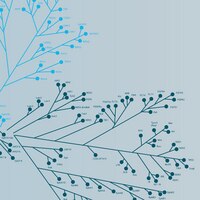14-842M Sigma-AldrichLck Protein, activated, 250 µg
Activated, N-terminal 6His-tagged, recombinant, human Lck full length, for use in Kinase Assays.
More>> Activated, N-terminal 6His-tagged, recombinant, human Lck full length, for use in Kinase Assays. Less<<Recommended Products
Áttekintés
| Replacement Information |
|---|
| Description | |
|---|---|
| Catalogue Number | 14-842M |
| Replaces | 14-710 |
| Brand Family | Upstate |
| Trade Name |
|
| Description | Lck Protein, activated, 250 µg |
| Overview | N-terminal 6His-tagged, recombinant, human Lck full length |
| References |
|---|
| Product Information | |
|---|---|
| Quality Level | MQ100 |
| Physicochemical Information |
|---|
| Dimensions |
|---|
| Materials Information |
|---|
| Toxicological Information |
|---|
| Safety Information according to GHS |
|---|
| Safety Information |
|---|
| Storage and Shipping Information | |
|---|---|
| Storage Conditions | 1 year at -70°C from date of shipment |
| Packaging Information | |
|---|---|
| Material Size | 250 µg |
| Material Package | Also available in 10 μg size (cat#14-842) and in bulk (cat# 14-842-K). |
| Transport Information |
|---|
| Supplemental Information |
|---|
| Specifications |
|---|
| Global Trade Item Number | |
|---|---|
| Katalógusszám | GTIN |
| 14-842M | 04053252320576 |
Documentation
Lck Protein, activated, 250 µg MSDS
| Title |
|---|
Lck Protein, activated, 250 µg Certificates of Analysis
| Title | Lot Number |
|---|---|
| Lck, activated - 1629379 | 1629379 |
| Lck, activated - D8KN044N-B | D8KN044N-B |














